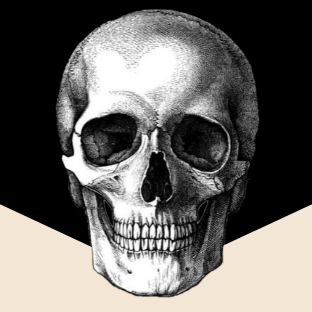
In the 1960s, visitors to the Mattatuck Museum, in Waterbury, Connecticut, would have been familiar with an exhibition of a human skeleton encased in glass. The unidentified remains were later discovered to be that of an eighteenth-century Waterbury man by the name of Fortune, who had once been enslaved and in service to renowned orthopedic surgeon Dr. Preserved Porter. When Fortune died in 1798, Dr. Porter maintained Fortune’s skeleton for the purposes of anatomical study. In a chilling turn of events, Fortune’s wife, also in servitude to the Porter family, regularly cleaned the room where her husband’s skeleton hung.
After Dr. Porter’s death, several generations of his heirs used Fortune’s skeleton to further their knowledge of human anatomy. In 1933, Dr. Sally Porter Law McGlannan, a descendant of Dr. Preserved Porter and one of the early female graduates of The Johns Hopkins University School of Medicine, donated the skeleton to the Mattatuck Museum. By then, however, Fortune’s name had been forgotten along with his history. He was publicly displayed as “Larry” until 1970 when the skeleton was removed from exhibition out of respect, and the remains stored in the museum’s basement.
In 1999, Waterbury’s African American History Project Committee learned about the skeleton and initiated an inquiry into its true identity. As a result of the committee’s research, the Mattatuck Museum debuted a new, historically accurate exhibition in the spring of 2003. Connecticut’s Poet Laureate at the time, Marilyn Nelson, was commissioned by the museum to compose a collection of poems, entitled Fortune’s Bones: The Manumission Requiem, inspired by Fortune’s remains.
In 2012, Nelson read selections from Fortune’s Bones at the WCSU MFA program summer residency. In subsequent discussions with students and faculty Nelson suggested that her project could be repeated with other collections and other museums in a literary journal dedicated to the mission of publishing creative works inspired by objects and images of material culture contained in museums and elsewhere. To take up Nelson’s charge, Poor Yorick was founded in the spring of 2013.
